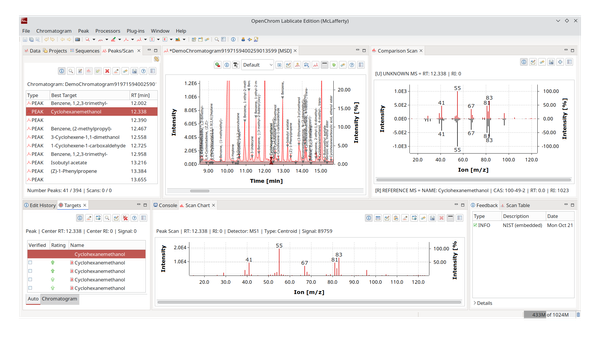Probability Based Matching
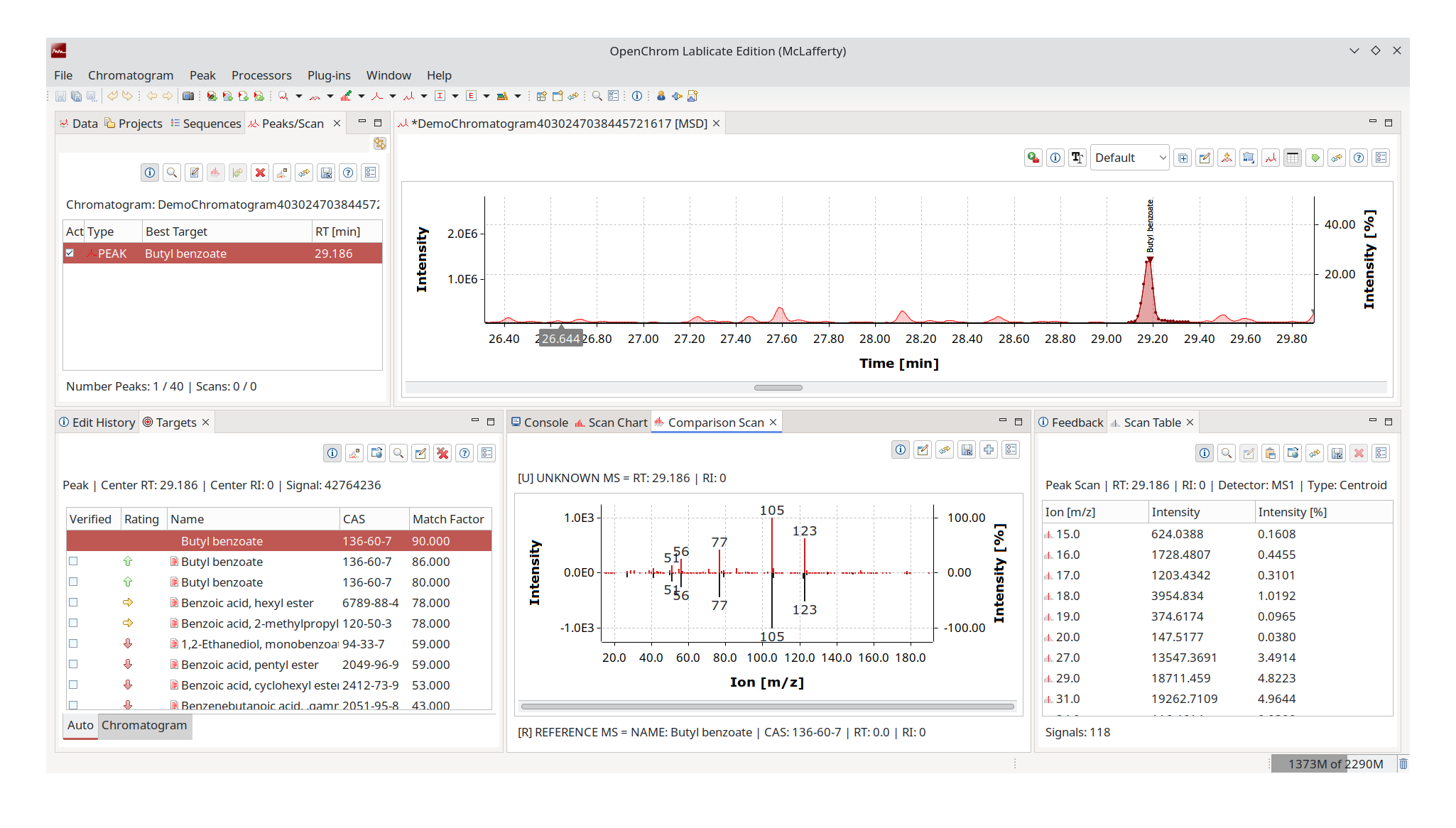
Identifying substances via mass spectra with the help of computers started in the 1970s. PBM, short for Probability Based Matching, drafted by Fred McLafferty and his students at Cornell University, stands out because it was also commercially available in products such as the popular Agilent ChemStation®. Over the decades, the original algorithm was faithfully ported to new platforms, and we did the same by integrating it into OpenChrom.
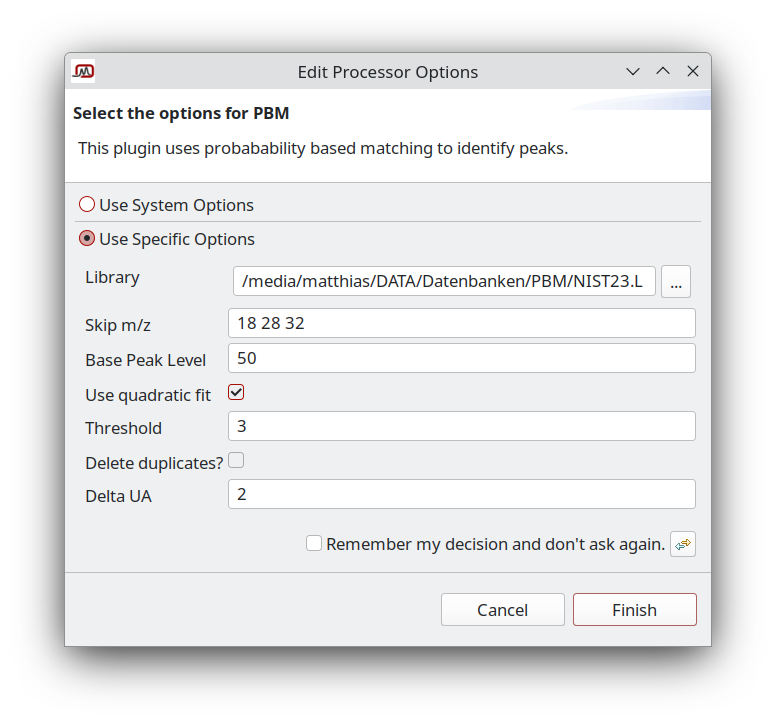
The main goal was compatibility, so its internals remained untouched even though its design is clearly influenced by computing with hardware from the 1970s where floating-point units were not readily available and processing power was limited. Only the interface was changed so it natively integrates with OpenChrom.
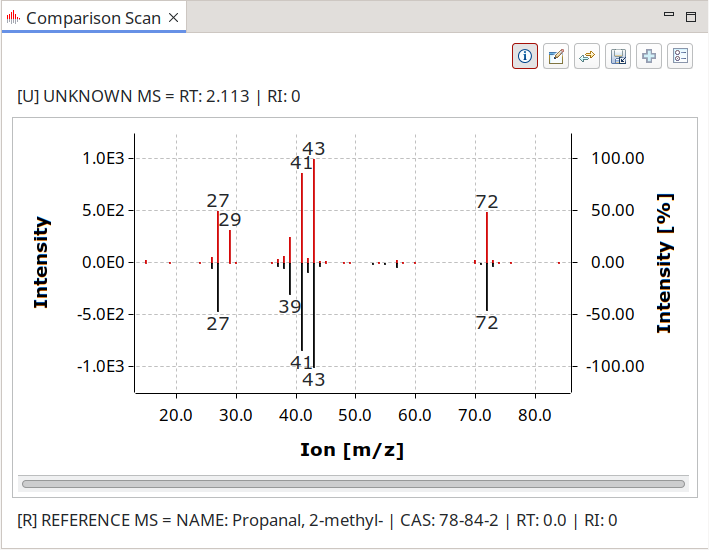
No additional software needs to be installed. We reimplemented everything in Java, making this the first port to run cross-platform on Windows, macOS and Linux operating systems for both Intel and ARM platforms. Initially written in Pascal and ported to Fortran and C in the 80s for HP-UX system, it now makes a return to modern Unix variants and every operating system supported by the Java runtime now and in the future.
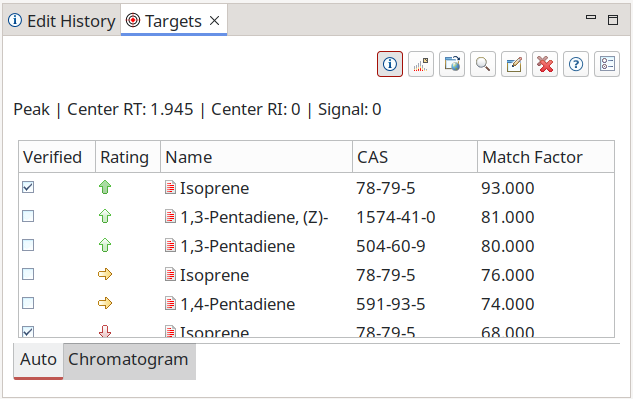
But why do this at all? Is there really a need to keep antiquarian software alive? OpenChrom itself has support for a variant based on NIST MS Search or mass spectra comparison that works more like modern web searches. The main reason for us is compatibility. If you have a method that was validated against the ChemStation® mass spectra search, you can now update your computers and get the exact same results with PBM for OpenChrom. Also, remember that this algorithm was road tested for 30 years so it is extremely mature.

Another fun fact when porting software from the dawn of computing is that they run pretty fast on modern hardware. While the algorithm does not benefit from running on multiple cores and is very much tight to the Agilent *.L format, running it on a modern computer with a recent SSD, gives you the fastest mass spectra search available for OpenChrom.

If you don't have a legacy database in *.L format but still want to try PBM, we offer the NIST 23 database not just in our format, but also in several vendor formats. You can ask for a NIST23.L after purchasing at Lablicate or sending us an invoice proofing that you are already licensed.
Also check out the OpenChrom handbook for descriptions on internal workings, parameters, limitations and further literature references.

